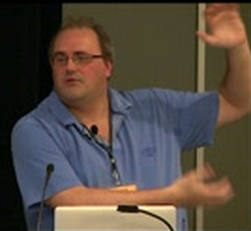Trip Report: On Games(SG14) and TM(SG5) from The View at the May 2015 C++ Standard meeting in Lenexa
Another longtime committee member just posted his trip report for last month's meeting:
On Games(SG14) and TM(SG5) from The View at the May 2015 C++ Standard meeting in Lenexa
by Michael Wong
From the article:
The yellow brick road starts here in Kansas (actually Lenexa) hosted by Perceptive Software, and it is called C++17. At this meeting, it led with a major evening discussion on the philosophy of C++17 on a Monday night full session...

 Have you registered for CppCon 2015 in September? Don’t delay –
Have you registered for CppCon 2015 in September? Don’t delay –  Have you registered for CppCon 2015 in September? Don’t delay –
Have you registered for CppCon 2015 in September? Don’t delay –